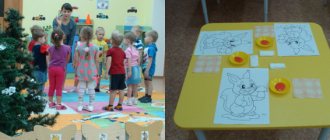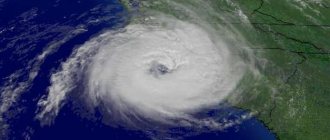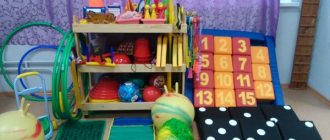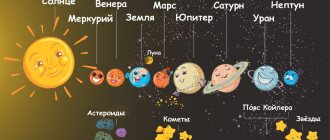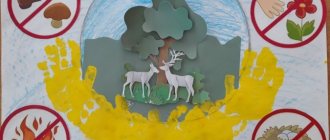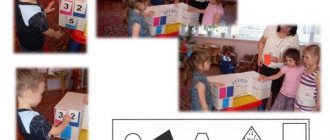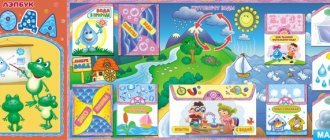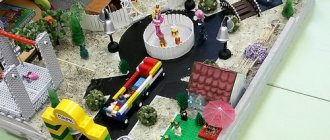Health education - valeological education
Health education is one of the objectives of the Research Priorities for Health for All (WHO, 1989). Pedagogical valeology is a new area of scientific knowledge, emerging at the intersection of general pedagogy and valeology, bringing health, predetermining the principles and ways to achieve physical, mental and social well-being, increasing reserve capabilities. Educational institutions at all levels are called upon to implement the pedagogical direction of valeology, forming a culture of health among subjects of the educational process, which will ensure positive changes in the health of the population in the future.
Relevant are the development and implementation of a comprehensive program for valeological support of preschool education, including both tasks for the prevention of children’s diseases, the development of their physical and mental reserves, and tasks for the formation of stereotypes of a healthy lifestyle, as well as training parents in valeological methods of analysis and correction of children’s health.
According to many Russian scientists, the modern educational system is not aimed at preserving and improving the health of students and teachers, but at deteriorating it. According to statistics, 80-85% of school-age children are in poor health, more than half of university students need treatment, and more than 85% of teachers have chronic diseases. The professional activity of a teacher does not contribute to the preservation of his health - among teachers with experience there are practically no healthy ones. During the training period, the number of healthy children decreases. The reasons for this situation, according to official data, are factors of the intra-school environment: overcrowding of classes, non-compliance of furniture with hygienic standards, air pollution in school premises, joint education of children with different levels of training, authoritarian style of work of the teacher, overloaded curriculum, unfavorable psychological climate of school groups. The low level of health of school graduates negatively affects the production potential and defense capability of the country.
According to domestic valeologists, pedagogical valeology should ensure the formation of valeological literacy, a valeological approach to the educational process, and health-improving work during school and extracurricular hours.
The introduction of pedagogical valeology involves two directions: conducting health lessons, starting from the first grade, and valeologization of the entire education system. The latter assumes that every lesson and any school event should contain a health-improving effect, prevent the development of overwork, and not worsen health, but promote its development. This can be achieved by solving the problem of school nutrition, optimizing the motor regime, hardening, conducting full-fledged physical education lessons, and observing hygiene requirements. The effectiveness of the educational process largely depends on the implementation of the listed components of the school regime (Kazin, 1999).
The formation of children's health by pedagogical means should depend not only on the efforts of the valeologist teacher, but also on the participation of educators, teachers of all specialties, the entire teaching staff of not only schools, preschool institutions, but also institutions of additional education. Improving educational regimes and pedagogical technologies by valeologists alone is impossible if the valeology culture of the entire teaching staff is insufficient. By valeological culture of a person, V.V. Kolbanov understands not only valeological awareness, but also a dynamic stereotype of behavior developed on the basis of true needs that contribute to a healthy lifestyle and determines a careful attitude towards the health of others. One of the difficulties in introducing the valeological paradigm is the requirement for valeological training of teachers of all specialties.
At the end of the 90s, a new scientific direction and specialty “Valeology” was opened in Russia, and an educational standard was developed for the training of specialists-valeologists. The state education system in this specialty should be aimed at training specialists who know the functional capabilities of a healthy person’s body at all age stages, who are able to promptly and effectively identify deviations from age standards and actually provide individual correction of a person’s condition and its development. The professional activity of such a specialist should be ensured by interdisciplinary fundamental knowledge of human biology and practical training that ensures the determination of the level of health and the implementation of correction in case of functional disorders. The issue of opening the specialty “Valeology” for awarding candidate and doctoral academic degrees was discussed. Unfortunately, not only was the new specialty of the Higher Attestation Commission not introduced, but also the training of specialists with higher valeological education was stopped. Despite the fact that valeology currently in the Russian Federation does not have these official forms of recognition, many well-known scientists in leading Russian scientific centers are actively working on the problems of the formation, development, preservation and strengthening of human health at all age stages.
Significant successes in solving issues of valeology education have been achieved in a number of regions of the Russian Federation: St. Petersburg, Kemerovo region, Rostov region, Novosibirsk region, Tula, Lipetsk, Krasnoyarsk, etc. There is an urgent need to form a valeology service not only in every educational institution, but also in general in municipal, regional and federal education systems. The need to create such a service is confirmed by the fact that despite numerous methodological, organizational, and financial difficulties, it is being introduced in educational institutions of all types and levels in various regions.
The active work of scientists of various specialties to introduce health-saving forms of education and health teaching methods was demonstrated at the I All-Russian Scientific and Practical Conference “Functional State and Human Health”, which took place at Rostov State University in September 2006.
The practice of introducing health-saving technologies into the education system of the Kemerovo region convincingly demonstrates the need to create in each municipality an integral territorial program that would orient each district, city and each educational institution towards the solution (implementation) of the formation of an integral health-preserving environment and socio-pedagogical space within the framework of three main problems: creating conditions conducive to maintaining and promoting health in educational institutions; organizing and conducting interdepartmental activities to protect and promote the health of subjects of the educational process; ensuring continuous education of teachers and students on the issues of formation, preservation, strengthening and development of physical, mental and social health.
The strategic goal of the proposed programs is to improve the quality of education while maintaining and developing the physical, mental and social health of children and adolescents of educational institutions through the implementation of individually oriented psychological, pedagogical, social and medical assistance to students, pupils, psychological and physiological support of the educational process in order to solving problems of school and social adaptation and maladjustment, scientific justification for the choice of individual pedagogical programs and training profile.
A valeology center has been created at the Krasnoyarsk State Technical University, the director of which is Professor O. N. Mos-Kovchenko, programs have been developed that include a set of diagnostic and preventive measures that increase the intensity of the implementation of valeology in improving human life. The experience of the successful operation of the valeocenter has already been extended to other universities in the city. It has been shown that the introduction of health-saving technologies into educational activities can increase students' interest and develop the need for self-education. The exchange of original educational programs by specialists from different universities in related fields of knowledge significantly expands the range of valeological education and contributes to the faster implementation of new educational technologies aimed at the effectiveness of the educational process in solving problems of a theoretical and practical nature. The goal of health-saving technologies is to develop sustainable motivation for self-development, self-realization, and self-improvement. The formulated goal defines the basis of a culture of health as a multifaceted concept of an integral system, the components of which are not only the physical potential of a person, but also his spiritual and moral health - as socially significant qualities of an individual. (Moskovchenko, Furyaeva. Krasnoyarsk).
The Health Center of Tula State University was created. Original equipment has been developed for monitoring the health of students. Based on the results of the examination, a conclusion is formed in real time, which indicates the group of functional state, according to R. M. Baevsky, the results and assessment of the tests performed (including dynamics), the risks of deviation of functional systems and a detailed individual rehabilitation program. The rehabilitation program can also be completed at the Health Center.
At the Center for Medical Prevention "Origins of Health" in Ryazan, the hardware and software complex "Origins of Health" has been developed and successfully used to assess, predict and correct the functional health reserves (adaptation reserves) of participants in educational and labor activities, to create and use a person's "Health Passport" .
Tomsk State University has created an Automated Complex for assessing human functional reserves and maintaining a “health passport”. The complex is registered with Rospatent, tested and implemented in a number of educational institutions in Siberia, and has been awarded awards at regional exhibitions.
For the purpose of early pre-nosological diagnosis of a decrease in the body’s ability to prevent the occurrence of diseases, the Pulsar-A complex was developed at the Modern Humanitarian Academy (Moscow). The development was carried out on the basis of the classical concepts of variation pulsometry. The Pulsar-A software and hardware complex has shown high sensitivity and reproducibility of results during mass examinations and can be used for ongoing examination of the health status of students, as an element of a health-saving education system in higher educational institutions that use distance technologies as a primary screening method (Kachalova, Kish , Loginov, 2006)
At the St. Petersburg State University of Aerospace Instrumentation, as part of the work on the topic “Methodology for screening assessment of the health of children and adolescents using multifunctional diagnostic complexes,” prototypes of the multifunctional hardware-software complex “Cyrillic-Az” were developed and manufactured based on original proprietary devices for non-invasive information acquisition. This complex is designed for simultaneous ECG recording via 12 channels and subsequent automatic contour analysis of data and implementation of variational pulsometry techniques approved by the Ministry of Health of the Russian Federation. The use of the Cyrillic-Az complex in the framework of city clinical diagnostic (St. Petersburg) screening examinations of more than two thousand adolescents aged 10-15 years showed that such characteristics of the complex as a stable software environment, the ability to work in monitor mode, autonomy, as well as its extreme simplicity and convenience for nursing staff, allow us to come close to the organizational and methodological optimization of clinical examination of the young population of St. Petersburg (Kilimnik et al., 2006).
Scientists from the Orenburg State Pedagogical University argue that health pedagogy, based on health-saving educational technologies, is a new priority direction in education. Its main subject is valeologization of education, which involves:
1. Learning to manage one’s own health, developing an individual lifestyle and the ability to make the necessary adjustments to it in the process of current life activities.
2. Mastery of the theory and methodology of developing motivation for a healthy lifestyle in children, adolescents and young people and developing a “health-giving” way of life.
3. Formation of skills to create in the process of raising and educating children, adolescents and young people (both in educational institutions and in the family) such a pedagogical information environment that would correspond to the true needs of students and would ensure the involuntary formation of the main components of health in them - somatic, mental , social (Meerson, Ermakova, 2006).
The “ESKIZ” program (Expert System for Correcting Individual Health), developed at the State Research Center for Preventive Medicine in Orenburg under the leadership of Academician of the Russian Academy of Natural Sciences I. A. Gundarov, is a modern certified product focused on analyzing health reserves and identifying factors for its possible loss. For a relatively short period of its use, the SKIZ program made it possible to demonstrate its capabilities in organizing a service for mass individual prevention of major non-communicable diseases in outpatient settings (Deryabin, Komarov, 2006).
In the city of Kirov, scientists from the Vyatka State Humanitarian University have developed and are implementing in schools in the city and region a comprehensive target program “School of Health” for class teachers, teachers, parents, and students. In educational work, preference is given to the synthesis of the “Health” program with the basic component of the curriculum, i.e., the health-creative potential of academic disciplines and elective courses is used. A number of schools offer health lessons in grades 1-5. An example is the program of the elective course “Culture of Health”, which is one of the sections of the regional ecology course and reflects modern ideas about the formation of a healthy lifestyle and the creation of a health-saving educational environment. The programs being implemented are aimed at solving the main tasks of creating the need for a healthy lifestyle and a responsible attitude towards one’s health based on creating positive motivation through self-knowledge, self-development, and self-improvement (Voronina, 2006).
Thus, there is a real opportunity to improve the health of the population in modern socio-economic and environmental conditions through the introduction of a system for developing a healthy lifestyle for people from childhood through the valeologization of the educational environment.
Prev. article
- Compliance with life safety rules, including adherence to the principles of safe sex as AIDS prevention
Book's contents
Track. article
- The concept of valeological centers. Methodology and concept of maintaining a health passport
Comments on the article “Health education - valeology education”
Children's physical health is inextricably linked with their mental health and emotional well-being. Based on the principle “a healthy child is a successful child,” it is considered impossible to solve the problem of raising a socially adapted individual without implementing a system of measures for health-improving work and physical education of children. Therefore, at present, the use of health-saving technologies in kindergarten conditions is highlighted as one of the priority areas of pedagogical activity.
The use of health-saving pedagogical technologies in the work of preschool educational institutions will increase the effectiveness of the educational process, will form among teachers and parents value orientations aimed at preserving and strengthening the health of pupils, if conditions are created for the possibility of adjusting technologies, depending on the specific conditions and specialization of the preschool educational institution; if, based on statistical monitoring of children's health, the necessary amendments are made to the intensity of technological influences, an individual approach to each child is ensured; Positive motivation will be generated among preschool teachers and parents of children.
Health-saving technologies used in combination ultimately form a strong motivation in the child for a healthy lifestyle.
Only a healthy child is happy to participate in all types of activities; he is cheerful, optimistic, and open in communication with peers and teachers. This is the key to the successful development of all spheres of personality, all its properties and qualities.
Health-saving technologies in preschool education are technologies aimed at solving the priority task of modern preschool education - the task of preserving, maintaining and enriching the health of the subjects of the pedagogical process in kindergarten: children, teachers and parents.
The goal of health-saving technologies in preschool education
In relation to a child - ensuring a high level of real health for a kindergarten pupil and nurturing a valeological culture, as the totality of a child’s conscious attitude to human health and life, knowledge about health and the ability to protect, support and preserve it, valeological competence, allowing a preschooler to independently and effectively solve problems healthy lifestyle and safe behavior, tasks related to the provision of basic medical, psychological self-help and assistance.
In relation to adults - promoting the establishment of a culture of health, including a culture of professional health for preschool teachers and valeological education of parents
Health-saving educational technologies:
1) a systematically organized set of programs, techniques, methods of organizing the educational process that does not harm the health of its participants;
2) qualitative characteristics of educational technologies based on the criterion of their impact on the health of students and teachers;
3) technological basis of health-saving pedagogy.
Types of health-saving technologies in preschool education
- medical and preventive;
- physical education and recreation;
- technologies to ensure the socio-psychological well-being of the child;
- health preservation and health enrichment for preschool teachers;
- valeological education of parents;
We will focus on those that are necessary for educators to work with children
- Medical and preventive health-saving technologies in preschool educational institutions - ensure the preservation and enhancement of children’s health under the guidance of a preschool educational institution nurse in accordance with medical requirements and standards, using medical supplies.
- disease prevention technologies,
- in-depth medical examination with the participation of narrow specialists coming from the clinic,
- correction of emerging functional deviations,
- tracking the nature of the course of chronic pathology (for children with health group III-U,
- rehabilitation of somatic health status,
- anti-epidemic work and medical control of the catering unit in accordance with current sanitary and hygienic rules,
- vitamin prophylaxis (rosehip decoction in the autumn-winter period, fortification of third courses using ascorbic acid,
- sanitary and hygienic activities of all preschool educational institutions.
- Physical education and health technologies are aimed at the physical development and strengthening of the child’s health, the development of physical qualities, motor activity and the formation of physical culture of preschool children:
- hardening of KGN;
- conversations on valeology;
- sports holidays;
- sports entertainment and leisure;
- health weeks;
- competitions;
- walks and hikes.
Technologies for health conservation and health enrichment for teachers are technologies aimed at developing a culture of health for kindergarten teachers, including a culture of professional health, and developing the need for a healthy lifestyle.
Health conservation in working with preschool teachers:
training seminars, consultations for teachers, workshops for teachers, discussion of health issues at pedagogical councils and medical and pedagogical meetings in early age groups and correctional groups.
- Valueological education of parents is a technology aimed at ensuring the valeological education of parents of preschool children and their acquisition of valeological competence. Valueological education of parents should be considered as a continuous process of valueological education of all family members.
Interaction between preschool educational institutions and families on issues of protecting and promoting children’s health:
- Information stands for parents in each age group have sections covering issues of health improvement without drugs (sets of exercises for the prevention of disorders of the musculoskeletal system, visual organs, for the development of general and fine motor skills, finger games;
- Information stands for medical workers about preventive medical work with children in preschool educational institutions;
- Involving parents in participating in physical culture events of preschool educational institutions (competitions, sports festivals, open days, Health Days and Weeks, meetings of preschool educational institution children with parent-athletes, etc.);
- Consultations and conversations with parents on health issues.
Health-saving educational technologies in kindergarten are, first of all, technologies for educating a valeological culture or a culture of health in preschoolers.
Modern health-saving technologies used in the preschool education system reflect two lines of health-improving and developmental work:
- introducing children to physical education
- use of developmental forms of health-improving work.
Stages of implementation of health-saving technologies
- Analysis of the initial state of health, physical development and physical fitness of preschool children, their valeological skills, as well as the health-preserving environment of preschool educational institutions.
- Organization of a health-saving educational space in preschool educational institutions.
- Establishing contacts with social partners of preschool educational institutions on health issues.
- Mastering by preschool teachers of methods and techniques for preserving the health of children and adults of preschool educational institutions.
- Introduction of various forms of work to preserve and promote health for different categories of children and adults.
- Work on valeology with parents of preschool educational institutions.
Health preservation system in preschool educational institutions:
- various health regimes (adaptive, flexible, gentle, seasonal, during the holidays);
- a set of hardening measures (air hardening, walking on “health paths”, prevention of flat feet; walking barefoot, “stomping” in basins, gargling and mouthwashing, maximum exposure of children to the fresh air, invigorating gymnastics);
- physical education activities of all types;
- optimization of motor mode: traditional motor activity of children (morning exercises, physical education classes, outdoor games, walks) and innovative technologies for health improvement and prevention (rhythmoplasty, logorhythmics, dry pool, massagers, tactile paths);
- organization of rational nutrition;
- medical and preventive work with children and parents;
- compliance with SanPiN requirements for organizing the pedagogical process;
- a set of measures to preserve the physical and psychological health of teachers.
Areas of work on health conservation in preschool educational institutions
- Integration of tasks of physical culture and health work into various types of joint activities;
- Introduction of innovative health-saving technologies into the educational process of preschool educational institutions;
- A variety of forms of physical education and leisure activities with preschoolers;
- Formation of healthy lifestyle habits among preschoolers, teachers and parents;
- Improving physical qualities and ensuring a normal level of physical fitness in accordance with the capabilities and state of health of the child;
- Identification of interests, inclinations and abilities of children in physical activity and their implementation through a system of sports and recreational work;
- Ensuring the physical and mental well-being of every child in the preschool educational institution.
Ten golden rules of health preservation:
- Follow your daily routine!
- Pay more attention to nutrition!
- Move more!
- Sleep in a cool room!
- Don’t extinguish your anger, let it break out!
- Constantly engage in intellectual activity!
- Drive away despondency and blues!
- React adequately to all manifestations of your body!
- Try to get as many positive emotions as possible!
- Wish only the best for yourself and those around you!
Types of health-saving pedagogical technologies
Rhythmoplasty.
Not earlier than in 30 minutes. after meals, 2 times a week for 30 minutes. from middle age. Pay attention to the artistic value, the amount of physical activity and its proportionality to the child’s age.
Dynamic pauses (physical training minutes)
During classes, 2-5 minutes, as children get tired in all age groups. Recommended for all children as a preventive measure against fatigue. May include elements of eye exercises, breathing exercises and others, depending on the type of activity
Outdoor and sports games. As part of a physical education lesson, on a walk, in a group room - with low and medium mobility. Daily for all age groups.
Games are selected according to the age of the child, the place and time of the game. In preschool educational institutions we use only elements of sports games.
Relaxation
In any suitable room. Depending on the condition of the children and goals, the teacher determines the intensity of the technology. For all age groups. You can use calm classical music (Tchaikovsky, Rachmaninov, sounds of nature). Aesthetic technologies are implemented in artistic and aesthetic classes, when visiting museums, theaters, exhibitions, etc., decorating premises for holidays, etc. For all age groups.
It is carried out in classes according to the preschool educational program, as well as according to a specially planned schedule of events. Of particular importance is working with families, instilling aesthetic taste in children.
Finger gymnastics
Conducted at any convenient time (at any convenient time). From a young age, individually or with a subgroup daily. Recommended for all children, especially those with speech problems.
Gymnastics for the eyes.
Every day for 3-5 minutes. at any free time; depending on the intensity of visual load from a young age, it is recommended to use visual material, demonstration by a teacher
Breathing exercises.
In various forms of physical education and health work from a young age, ensure the room is ventilated, the teacher gives children instructions on mandatory hygiene of the nasal cavity before the procedure.
Awakening gymnastics.
Every day after nap, 5-10 min. in all age groups.
The form of implementation is different: exercises on beds, extensive washing; walking on ribbed planks; easy running from the bedroom to a group with a difference in temperature in the rooms and others depending on the conditions of the preschool educational institution. Health-improving running from an older age during the warm period in the morning on the street or on a walk. The need for running in physical fitness and sports shoes.
Technologies for teaching healthy lifestyles
Physical education classes 2 times a week in the gym, 1 time on the street. All age groups. Early age - in a group room or physical. hall - 10 min. Younger age - 15-20 minutes, middle age - 20-25 minutes, older age - 25-30 minutes. Classes are conducted in accordance with the program according to which the preschool educational institution operates. Before class, it is necessary to ventilate the room well.
Problem-based games (game training and game therapy)
In your free time, maybe in the afternoon. The time is not strictly fixed, depending on the tasks set by the teacher from an older age. The lesson can be organized unnoticed by the child, by including the teacher in the process of play activity.
Communication games 1-2 times a week for 30 minutes. from an older age. Classes are structured according to a specific scheme and consist of several parts. They include conversations, sketches and games of varying degrees of mobility, drawing, modeling, etc. Psychologist, preschool teachers
Self-massage
Depending on the goals set by the teacher, in sessions or in various forms of physical education and health work from a young age. It is necessary to explain to the child the seriousness of the procedure and give children basic knowledge of how not to harm their body
Corrective technologies
Music influence technologies
In various forms of physical education and health work; or separate classes 2-4 times a month depending on the goals in all age groups. Used as an aid as part of other technologies; to relieve tension, increase emotional mood, etc. Preschool teachers, music director
Color influence technologies
As a special lesson 2-4 times a month, depending on the tasks assigned, from middle age it is necessary to pay special attention to the color scheme of the interiors of the preschool educational institution. Correctly selected colors relieve tension and increase the child’s emotional state.
Behavior correction technologies
Sessions of 10-12 lessons for 25-30 minutes. from an older age
They are carried out using special methods in small groups of 6-8 people. Groups are not formed according to one criterion - children with different problems study in the same group. Classes are conducted in the form of a game, have diagnostic tools and training protocols
Fairytale therapy 2-4 lessons per month, 30 minutes each. from an older age, classes are used for psychological therapeutic and developmental work. A fairy tale can be told by an adult, or it can be a group story, where the narrator is not one person, but a group of children, and the rest of the children repeat the necessary movements after the storytellers.
The use of health-saving pedagogical technologies in the work of preschool educational institutions will increase the effectiveness of the educational process, will form among teachers and parents value orientations aimed at preserving and strengthening the health of pupils, if conditions are created for the possibility of adjusting technologies, depending on the specific conditions and specialization of the preschool educational institution; if, based on statistical monitoring of children's health, the necessary amendments are made to the intensity of technological influences, an individual approach to each child is ensured; Positive motivation will be generated among preschool teachers and parents of children.
Valueological education in kindergarten
Bibliographic description:
Zemskova, Yu. A. Valueological education in kindergarten / Yu. A. Zemskova.
— Text: immediate // Pedagogy: traditions and innovations: materials of the II International. scientific conf. (Chelyabinsk, October 2012). - Chelyabinsk: Two Komsomol members, 2012. - P. 52-54. — URL: https://moluch.ru/conf/ped/archive/63/2633/ (access date: 02/05/2022). Statistics show: today no more than 14% of children are born physiologically mature, i.e. Most people are not ready for a physiologically full life immediately after birth. Moreover, children entering grade 1 (25-35%) have physical disabilities or chronic diseases. The given figures make us think seriously about the reasons for this. Of course, they are connected with the socio-economic processes taking place in Russia. But the main reason is the cultural crisis of society, the low level of culture of the individual, family, and educational space as a whole. Therefore, in our preschool educational institution we are working on the topic: “Ecological and valeological education of children.” I am guided by the fact that the problem of preserving and strengthening human health is becoming more and more acute, requiring serious pedagogical reflection and solutions. In this regard, I am sure that valeological education is relevant already in preschool age.
We understand that valeology education is a conscious attitude towards health and life, knowledge about health and the ability to protect, support and preserve it, as well as independently and effectively solve problems related to a healthy lifestyle, safe behavior, provision of basic medical, psychological self-help and help. Based on this, I have specified the tasks of educating the valeological culture of preschoolers:
-formation of a conscious attitude towards health as a leading value and motivation for a healthy lifestyle;
- accumulation of knowledge about health, acquisition of skills and abilities that support, strengthen and preserve health;
- the formation of a child’s valeological competence as a readiness to independently solve the problems of a healthy lifestyle and safe behavior in unforeseen situations and the provision of basic medical and psychological assistance.
To implement my experience at a preschool educational institution it was necessary:
- to determine optimal pedagogical conditions that would allow effectively educating valeologically cultured preschoolers;
- create mechanisms for including valeological content in the pedagogical process of kindergarten;
- to determine the features of interaction between a teacher and a child during the development of valeological skills and technologies, technology of valeological support for preschool children;
-create a developmental environment in the preschool educational institution;
-form an approach to interaction with the family.
Have you noticed that the phrase “Healthy lifestyle” is heard literally at every step? That’s right: today this topic interests almost everyone. Particular attention is paid to proper nutrition, as it is one of the main components of a healthy lifestyle. Nutrition is one of the key factors determining the conditions for the growth and development of a child.
That is why I introduce children to the rules of rational nutrition from a very early age. But what if the baby refuses healthy foods, preferring various unhealthy treats? I interest and captivate the child through play.
The importance of play activities that contribute to the development of preschool children has been well known for a long time. A special role is given to didactic games. In the game, the intellectual, moral and emotional-volitional sides of the child’s personality are formed and developed. The content of didactic games forms in children the correct attitude towards the norms and rules of social life, objects of the surrounding world. Didactic games challenge children to rationally use existing knowledge in mental operations. The activity of children's thinking, manifested in didactic games, is the main prerequisite for a conscious attitude towards the acquisition of solid, deep knowledge.
In my work, I use didactic games that develop healthy eating skills (“Why does a person need bread?”, “Find vitamins,” etc.)
Functional tasks:
-contribute to the formation in children of interest and readiness to follow the rules of rational nutrition;
- deepen knowledge and understanding of food products, their effects on the human body;
- develop cognitive activity;
-promote emotional-volitional development, enrichment and activation of the vocabulary; development of verbal and logical thinking, imagination, attention;
-contribute to the development of gaming activities, communication skills and partnerships.
I organized the process of valeological education of preschoolers as a holistic one. The tasks of valeology education were solved in all types of activities. Active methods and techniques were selected to work with children on the above topic.
Methodology:
-self-analysis and self-determination in the field of educating the valeological culture of preschool children;
-self-enrichment and enrichment of the already mastered theoretical and methodological foundations of valeology, as well as practical ways of their implementation in professional activities;
-expanding professional horizons and opportunities for realizing creative potential in the course of experimental work.
Great results in acquiring knowledge in valeology were provided by such forms of support as business games with teachers, group and individual consultations, competitions and exhibitions.
One of the mandatory conditions for valeological education is the valeological culture of the family. Her enrichment and development was carried out through the following forms of interaction with parents:
- individual counseling of parents by a doctor and psychologist;
-release of the wall newspaper “Raising Healthy Children”;
-consultations and conversations with parents about valeological preventive skills;
-meetings with specialist doctors.
With the help of her parents, she created a developmental environment in kindergarten. In each group, physical education corners have been created, the attributes necessary for general developmental exercises, the design of a health zone with didactic games, manuals, folders, and plants that benefit people. An area of peace and quiet has been created, allowing the child to rest and relax, to be alone with himself. By creating a valeological development environment, we taught children to navigate it, to be able to use it in solving problems of strengthening, preserving and maintaining health. Thus, the nature of the interaction between a teacher and a child in the valeological environment of a kindergarten is defined as pedagogical support: an adult supports the child, guides him and helps him actively use the environment in solving designated problems.
Pedagogical support is a special area of pedagogical activity. We realized that its important condition is dialogue and cooperation between an adult and a child in the form of conversations, joint solving of problems and situations of choosing environmental objects and actions with them, activating the independent choice of the environment with which the child wants to interact. We observed that the child felt confident in the environment and successfully solved problems. Pedagogical support consisted of praise and encouragement, orientation towards success, organization of choice and solving gradually more complex problems of valeological content. If the child refused to interact with the environment and was passive in its development, then in the process of individual interaction I introduced him into the environment, offering to jointly master it, using play techniques, trying to interest the child in its components, encouraging his actions.
The process of raising valeological culture is ensured by the activity and independence of the child himself, so I supported this activity, creating conditions for the emergence of interest in solving problems of valeological content and the success of its solution.
Thus, the education of valeological culture in preschoolers will be ensured by the interaction of the following pedagogical conditions:
- the competence of teachers in solving problems related to the education of valeological culture in preschool children;
- valeological culture of the family;
-integration of the tasks of valeological education into the holistic pedagogical process of kindergarten;
-creation of a valeologically developing environment in a preschool educational institution and pedagogical support for the child in it;
- designing individual psychological, pedagogical, medical and valeological support for the child during the development of valeological culture.
